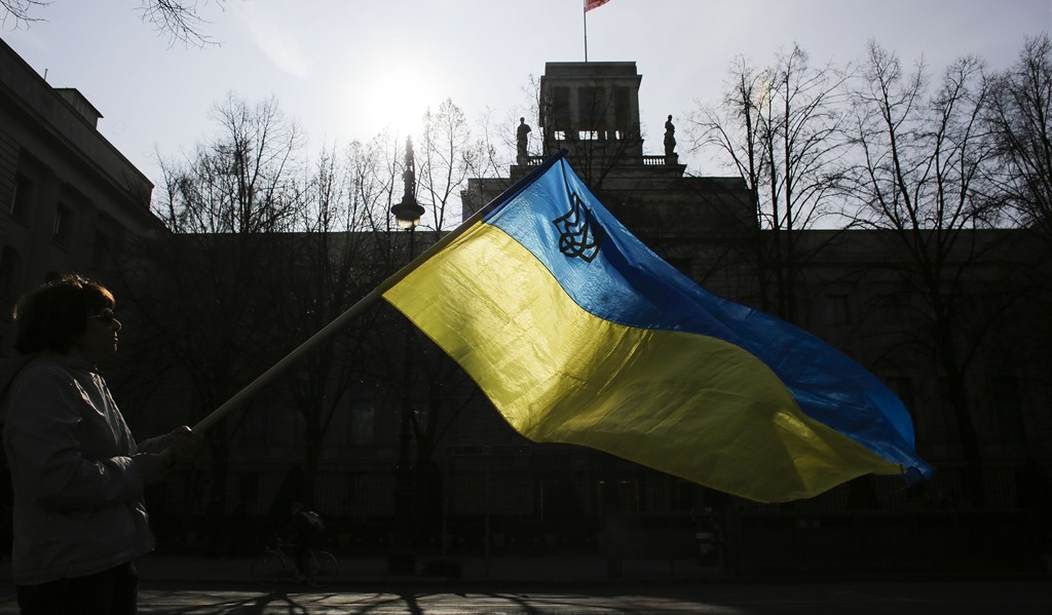By cutting off competition in the energy sector, a Ukrainian oligarch’s short-sighted scheming could jeopardize his country’s efforts to free itself from Russian influence.
Protectionist practices that prioritize political considerations above free market economics will only play into Russia’s hands. In April, the Associated Press reported that Kremlin officials expect that “full-scale fighting” could resume in eastern Ukraine. There’s more than mere bluster behind those remarks. Recall that it was only in 2014 that Russia sent troops to occupy Ukraine’s Crimean Peninsula.
Technically, Ukraine is still at war with Russian but at the same time the eastern European nation remains hooked on Russian energy. So, it would certainly behoove Ukrainian President Volodymyr Zelensky, and other government figures, to cultivate international partnerships that would enable the country to diversify its energy supplies.
That opportunity exists in the form of a Canadian energy company called TIU Canada that began to put down roots in Ukraine beginning in 2016. The Canadian company invested tens of millions of dollars to build a solar powered plant, according to news reports. TIU Canada is owned by Refraction Asset Management based in Calgary, Canada and was the first company to invest in Ukraine under the Canadian Ukrainian Free Trade Agreement.
But Igor Kolomoyskyi, one of the main shareholders of the Nikopol Ferroalloy Plant and a prominent oligarch, has allegedly worked through his company to close off TIU’s access to Ukrainian markets. If Kolomoyskyi is permitted to call the shots, his actions could be the death knell for any prospects Ukraine has for energy independence.
Recommended
TIU has filed suit to uphold the provisions of the Canadian Ukraine Free Trade Agreement, which was crafted to ensure free and open competition. But it’s been rough sledding so far with the Kyiv Commercial Court rejecting the company’s claims in January. TIU has announced its intention to appeal the lower court ruling. But in the end, it’s ultimately up to Zelensky and his government to ensure that the rule of law is upheld so that Ukraine can serve as a platform for free and fair trade. He was elected in 2019 largely on the basis of campaigning against corruption. The dispute between TIU and Kolomoyskyi could mark a major turning for Zelensky’s government.
The Canadian company makes this very point in a press release that points to the free trade case as a major test for Zelensky’s commitment to protecting foreign investors. He’s certainly aware of the stakes. While addressing the Economic Club of Canada back in July 2019, the Ukrainian president praised the work of TIU Canada.
How the dismantling of TIU’s power plant went down is a story worth telling since western energy companies could put Ukraine on the path toward energy independence if Zelensky can get a handle on corrupt practices that undermine competition.
TIU Canada’s Nikopol solar station sits on land leased long term from the city of Nikopol. As it happens, the solar plant connects to a substation on the grounds of the Nikopol Ferroalloy Plant. So, it didn’t take much of an effort on the part of the plant’s major shareholders to scuttle a competing company. In December 2019, TIU received a letter from the plant’s general director informing TIU that it would be disconnecting TIU from the substation so the plant could conduct repairs. Despite vigorous negotiations between the two companies, the Nikopol Ferroalloy Plant proceeded to disconnect TIU on March 2, 2020.
Citing Ukrainian law, TIU describes the disconnection as “illegal” since the plant acted “without obtaining the range of all the necessary permissions.” TIU also claims the connection has cost the company more than 1.5 million Euros in damages.
The legal dispute between TIU, Kolomoyskyi and crew fits into a larger geopolitical picture. Eastern Europe as a whole remains an attractive place for U.S. natural gas exports that could further erode Russian influence. Certainly, Moscow knows the stakes. As The Daily Signal has previously reported, U.S. environmental groups have come under congressional scrutiny for enabling Russian “propaganda” directed against the process of hydraulic fracturing in the U.S. that has led to robust natural gas development.
So, there’s a lot riding on TIU’s free trade litigation not just for Ukraine, but for Eastern Europe as a whole and the western countries that can provide a counterbalance to Russia. But up until now, TIU has been back on its heels.
“Unfortunately, this court ruling is just the latest in a series of setbacks for foreign investors in Ukraine,” the company acknowledges in a press release. “Last year Ukraine received only $200 million in foreign direct investment due to the lack of rule of law, widespread corruption, and the Covid pandemic. The corruption situation was exacerbated last year due to a kangaroo court ruling by Ukraine’s Constitutional Court which cancelled the disclosure requirements for public officials.”
Renewable energy comes with its own problems and challenges. Solar energy, for instance, unlike natural gas can be highly intermittent. But when married in with other energy sources available to Ukraine like nuclear and coal, solar energy from western companies could help to plug existing gaps and level the playing field with Moscow.
Instead of sitting idly by, the Biden administration should work to establish fair trade practices and push back against corrupt practices to give all the advantages to America’s strategic competitors.

























Join the conversation as a VIP Member